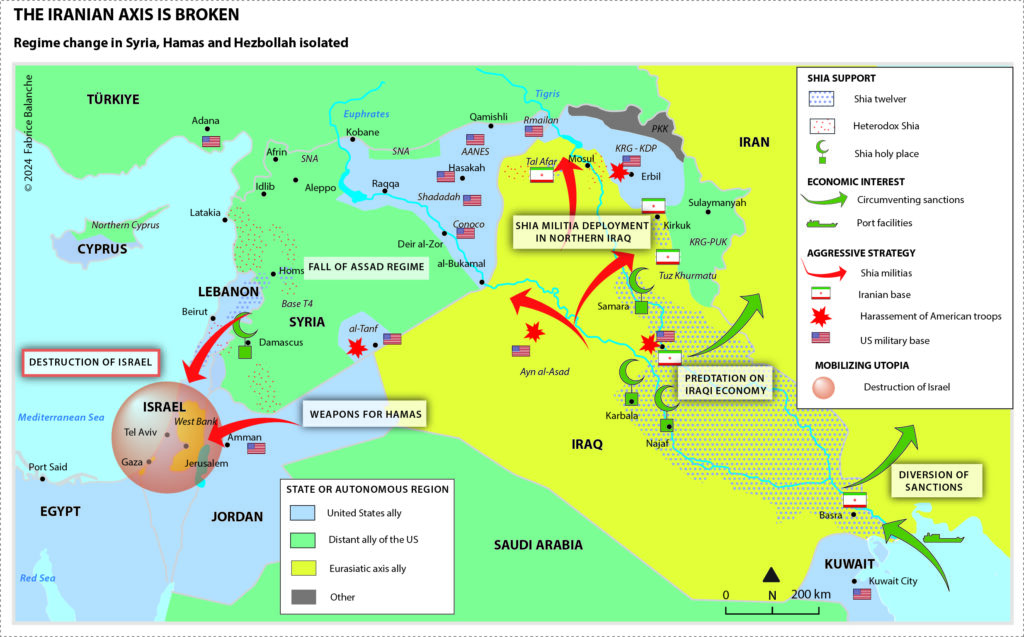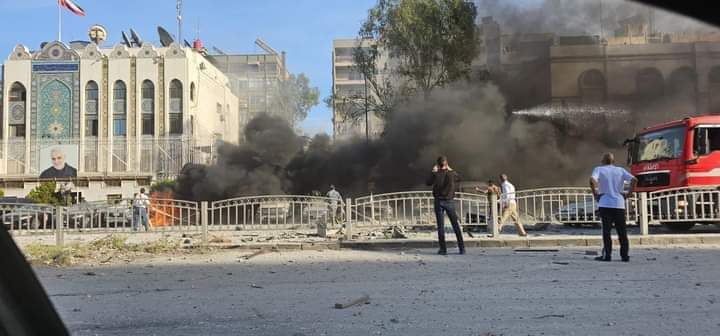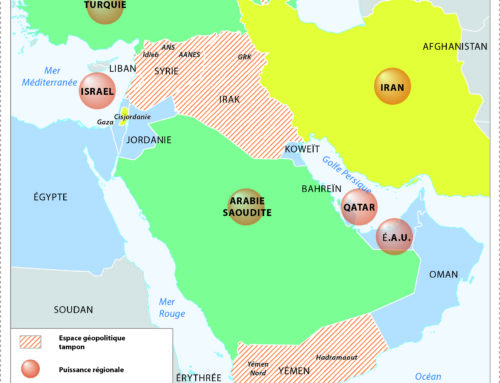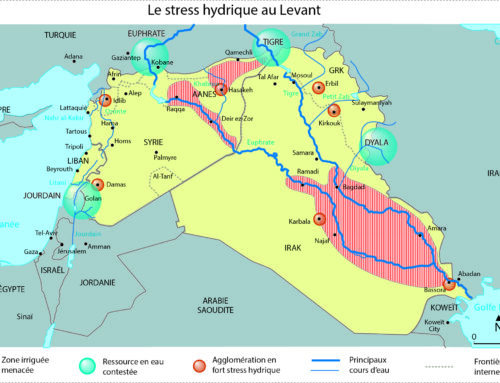Published in French, Le Figaro, 13 June, 2025 by Amaury Coutansais-Pervinquière
INTERVIEW – “Israel will follow the same strategy in Iran what it did in Lebanon against Hezbollah by striking regime officials and its infrastructure,” argues the Middle East specialist.
Fabrice Balanche is a lecturer in geography at the University of Lyon-2 and the author of “Lessons from the Syrian Crisis” (Odile Jacob, 2024).
LE FIGARO : In the middle of the night, Israel attacked Iranian targets, including nuclear facilities and military leaders. Why did it strike when the United States is negotiating with Tehran over its nuclear program?
Fabrice BALANCHE.- Israel has an opportunity. Donald Trump gave 60 days for negotiations, and we are now on the 61st. The Iranians did not want to dismantle their uranium enrichment process (necessary for the development of an atomic bomb, editor’s note) as the American president demanded. They were asked to import enriched uranium for civilian energy use, but not to enrich it themselves, as this would allow them to develop military capabilities. The Iranians dragged out these negotiations.
But an implicit agreement unites Donald Trump and Benjamin Netanyahu, the Israeli prime minister, to prevent the Israeli army from intervening during negotiations. The Israelis suspect this outcome. They acted accordingly. The Iranians want a nuclear weapon to protect their territory and attack their enemies. They believed that a nuclear weapon would allow them to invade their neighbors without fear of retaliation, just like Russia did in Ukraine. Israel, feeling threatened, sought to avoid this danger.
LE FIGARO: Until now, apart from two salvos between Israel and Iran in 2024, the confrontation between the two countries has taken place through proxy allies: Hamas in Gaza, Hezbollah in Lebanon, the Bashar al-Assad regime in Syria… They have all been weakened or neutralized since October 7. Did they have any choice but to fight directly?
In fact, Hamas was the first target of retaliation following October 7. Hezbollah in Lebanon was also targeted because, in the event of an attack on Iran, Israel could not afford a threat from the north. Finally, to prevent Hezbollah’s resupply, the fall of the Syrian regime was inevitable. This is especially true given that the Israeli army regularly bombarded pro-Iranian positions in Syria. The conflict is expected to persist for at least one week, with Israel conducting sustained airstrikes against Iranian targets. Israel intends to inflict on Iran the same scale of retaliation as it did against Hezbollah in Lebanon, targeting the regime’s leadership and critical infrastructure.

I think Israel will target not only Iran’s nuclear infrastructure, but also its oil and gas facilities, as this would threaten Iran’s economy. The mullahs’ government will face a difficult decision between rebuilding civilian infrastructure to nourish its people and revitalize its economy, or re-investing tens of billions of dollars in its nuclear program. I doubt that the population will accept the latter solution, since the regime is very unpopular, as evidenced by the women’s Life and Freedom protests in 2022.
LE FIGARO: By removing Iran’s allies as a threat, has Israel created a security zone for itself?
No. Hamas is neutralized, but Hezbollah remains partially operational, and Iran can still inflict harm. We should analyze this last point after a week of strikes. In any case, recent months have shown that Iran’s allies are not as dangerous as they once were. However, Israel must contend with an even more pressing problem: demographics.
In 2007, the Palestinian Mandate territories had a population of 10.7 million. Of that number, 51% were Jewish, 46% Arab, and 3% foreign. By 2023, the population had grown to 15.3 million, with 47% Jews, 49% Arabs, and 4% foreigners. In the West Bank, despite the growth of Israeli settlements, the Jewish population remained at 17% in 2007 and declined to 13% in 2023. Additionally, Israeli demographic growth is largely attributed to Orthodox religious denominations that do not participate in military service. Palestinians’ demographics are a matter of concern for Israel, as they are perceived as a potential time bomb. This partially explains Benjamin Netanyahu’s motivation to relocate the people of Gaza to other countries.
LE FIGARO: How will Iran respond to these attacks?
The regime has deployed drones, which can fire multiple missiles at once, as it did twice in 2024. However, its response will take time through its regional allies. In the short term, its options seem limited. Hezbollah is very weakened, and the US Navy is cruising near Houthi positions in Yemen. If American bases in the Gulf or Iraq were attacked, Donald Trump could use this as justification to shift from defensive support for Israel to offensive support. Nuclear negotiations with the United States are ongoing, which gives Iran a way out, albeit one that is unlikely to be taken. The mullahs do not have Russia, preoccupied with Ukraine, or China, unwilling to get involved, as allies. There is a concern that Iran may resume hostilities against Western interests. LE FIGARO: Finally, how can we explain the attitude of the countries in the region, who are generally suspicious of Iran?
There is apprehension regarding Iran’s reaction. The Arab states’ reactions are disingenuous. They publicly condemn the Israeli attack but are secretly delighted, as no country wants a nuclear Iran. Note that these strikes occurred shortly after Donald Trump’s trip to the Middle East, where he raised almost $1 trillion. He may have discussed this with the leaders of the Arab countries. As a result, he received investments as a token of gratitude for American protection.






